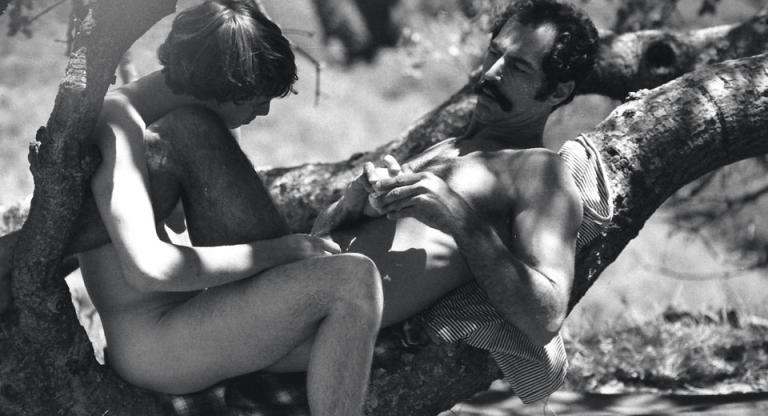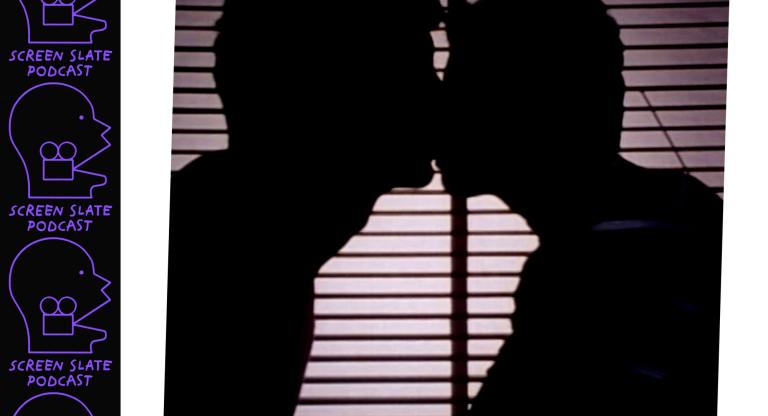Personal is political is pornographic in pioneering gay auteur Arthur J. Bressan’s trilogy of narrative features, beginning with Passing Strangers (1974), continuing with Forbidden Letters (1979), and concluding with Daddy Dearest (1984). Bressan is a fascinating auteur. Weaned on Frank Capra (with whom he later conversed for a feature in Interview Magazine, where he is inexplicably credited as “Andrew Bressan”) and classical Hollywood screwball comedies, Bressan straddled PBS documentaries, subversive dramas, and adult films—all of which played at the Castro theater in his adopted city of San Francisco, where he befriended and marched beside Harvey Milk. While all of these films share the common purpose of normalizing the sex lives of gay men, they also have many narrative and stylistic similarities. Across genres, Bressan specialized in patchwork quilts of contemporary gay identity that interweave different temporalities and styles, often with a predilection for the epistolary; letter writing in his films conveys longing and memory. While Bressan’s more public works emphasized the sheer breadth and scope of America’s gay population, his adult film work was resolutely introspective and intimate in more ways than one.
Daddy Dearest is one of Bressan’s lightest films (“Everybody gets what they want,” is how Bressan described it to the Bay Area Reporter, as recounted on the crucial and thoroughly researched Ask Any Buddy podcast episode about the film), falling as it does post-Anita Bryant and pre-HIV. It’s also, along with Juice (made the same year), one of his New York movies. It was originally meant to star Robert Adams, the lead from the first two films in the loose trilogy, but Adams turned it down. He later expressed regret to Gay City News, but at the time was “feeling too self-conscious.”
New York provides Bressan with a landscape ripe for voyeurism and he takes full advantage of it. Early on, we see the somber adult filmmaker Edward Thompson (Daniel Holt) silently watching a happy and horny gay couple across the street through a pair of binoculars to take his mind off the torment of a recent breakup. Thompson, like Bressan, is something of an adult film auteur, and his frequent differences of opinion with his producer over his newest production, Fuck Me, Fuck Me, Daddy!, give the film a meta-framing and the flavor of a behind-the-scenes showbiz parody. The film-within-a-film concerns an NYU student writing letters to his dream older man (Richard Locke); thus, allowing Bressan to still play with his favored pen-and-ink format while flitting between the production and the tale of Holt’s lonely and heartbroken director. Bressan’s interest in classical framing and negative space is on full display here—it’s rather incredible how many ways Bressan and his cameraman (credited as W.B. Wannagan) find to frame an erection in the foreground with a considerable depth of field behind.
Daddy Dearest is as seminal as Bressan’s better known work, if for different reasons. It’s silly, sly, doesn’t wrestle with life-or-death topics of queer living, and provides a happy ending to Bressan’s wistful dreamer analog. That the custodians of Bressan’s work, UCLA Film and Television Archive and The Bressan Project, along with distributor Altered Innocence, have finally made their way to giving the full restoration treatment to both Daddy and Juice is a welcome relief.
Daddy Dearest screens Sunday afternoon, February 16, at the Roxie as the opening film 40 Years of Queer.
Previously:
Daddy Dearest screens this evening, December 9, at IFC Center as part of the series “Cruising the Movies.”





